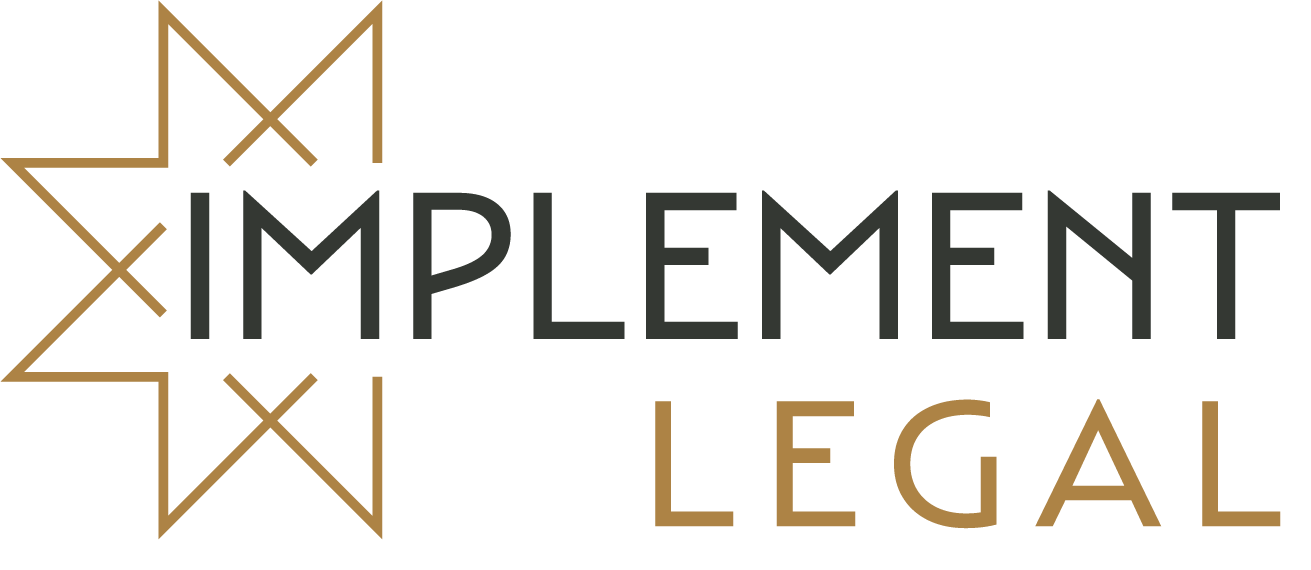How Do I Hire a Lawyer?
During our Fit Calls, nearly everyone poses some variation of this question. (By the way, you’re not supposed to know the answer to this question - or any question - when you show up to a Fit Call.)
Finding a lawyer works like finding a doctor or dentist. You ask your friends!
But most of us have been going to the doctor and dentist since we were kids. You have a general idea of what will go down and know which questions to ask if you’re unsure.
Once you have a recommendation for a great lawyer, what do you do next?
Hiring a lawyer can be expensive. It’s crucial to choose a lawyer whose fees and expertise align with your budget and your specific needs, but it’s imperative to choose someone you trust.
For us, trust starts with transparency. Clear explanations of process, timelines, deliverables, and fees.
Here are 5 key considerations - and tips - that will help you hire the right lawyer for you.
1. Type of Legal Service
Different legal services come with different price tags. For example, hiring a lawyer to set up an LLC or draft a will might be less expensive than retaining a lawyer for a complex negotiation.
Tip: Get a benchmark price for the legal services you need. Ask lawyers for a fee schedule or search their websites for prices. (You can find our fees HERE.) If they are unwilling to provide their fees, request a written estimate for the total costs and ask the lawyer to include a “not-to-exceed” limit so there are no surprise bills!
2. Complexity of Your Needs
Complex or unique legal matters requiring extensive research or negotiation will likely cost more than simple situations. For example, drafting a basic legal document or filing a standard copyright registration costs less than negotiating contract terms with a sophisticated counterparty.
Tip: If you don’t know if your needs are “simple” or “complex,” request an initial consultation. Many lawyers offer free or low-cost meetings to assess your situation and provide an estimate of the fees involved. Free consultations are a good way to know if you feel comfortable working with that lawyer. (We call these “Fit Calls” because they’re an opportunity to see if we like each other. You can schedule that HERE.) Paid consultations can help you and the lawyer better understand the legal issues needing attention and offer a comprehensive plan with a clear fee structure. (You can schedule one with us HERE.)
3. Experience and Expertise
More experienced lawyers, especially those specializing in a niche area of law, often charge higher fees. Additionally, lawyers with expertise and experience in a particular type of situation may command premium rates.
Tip: Consider the risks and rewards of working with an expert. Hiring a lawyer with ultra-specific expertise - like us - may actually save you money (because we don’t need to spend as many hours researching the issues) or result in a more favorable outcome (especially in negotiations!), making their higher fees a worthwhile investment. You can read about our team’s extensive experience and areas of expertise HERE.
4. Geographic Location
The cost of legal services can vary significantly by region and even within the same state. Expect legal fees to be higher in major metropolitan areas than in smaller towns or rural areas. Why? Higher prices for office space, employee salaries, and other costs affect the fees you’re charged!
Tip: Know the current price range for your region. Average hourly rates can range from $250 to $1,000+. (We charge $400/hr.)
5. Billing
When deciding to hire a lawyer, knowing what services will be provided and how much they will cost is essential. Lawyers typically charge fees using various billing structures, including hourly rates, flat fees, contingency fees, or retainer fees. (You can find all of our fees HERE.) Cost structures and legal fees can be confusing, and the choice of billing structure can significantly impact the total cost.
Tip: There is no maximum limit a lawyer can charge, so make sure to get a fee agreement in writing before retaining a lawyer. Specifically, you should be clear about whether you are being charged a flat rate vs. hourly billing, retainer vs. contingency fees, any additional costs (such as filing or processing fees), and if payment plans or sliding scale fees based on your income are available.
Did we miss anything? Head over to our Frequently Asked Questions page or schedule a Fit Call!

